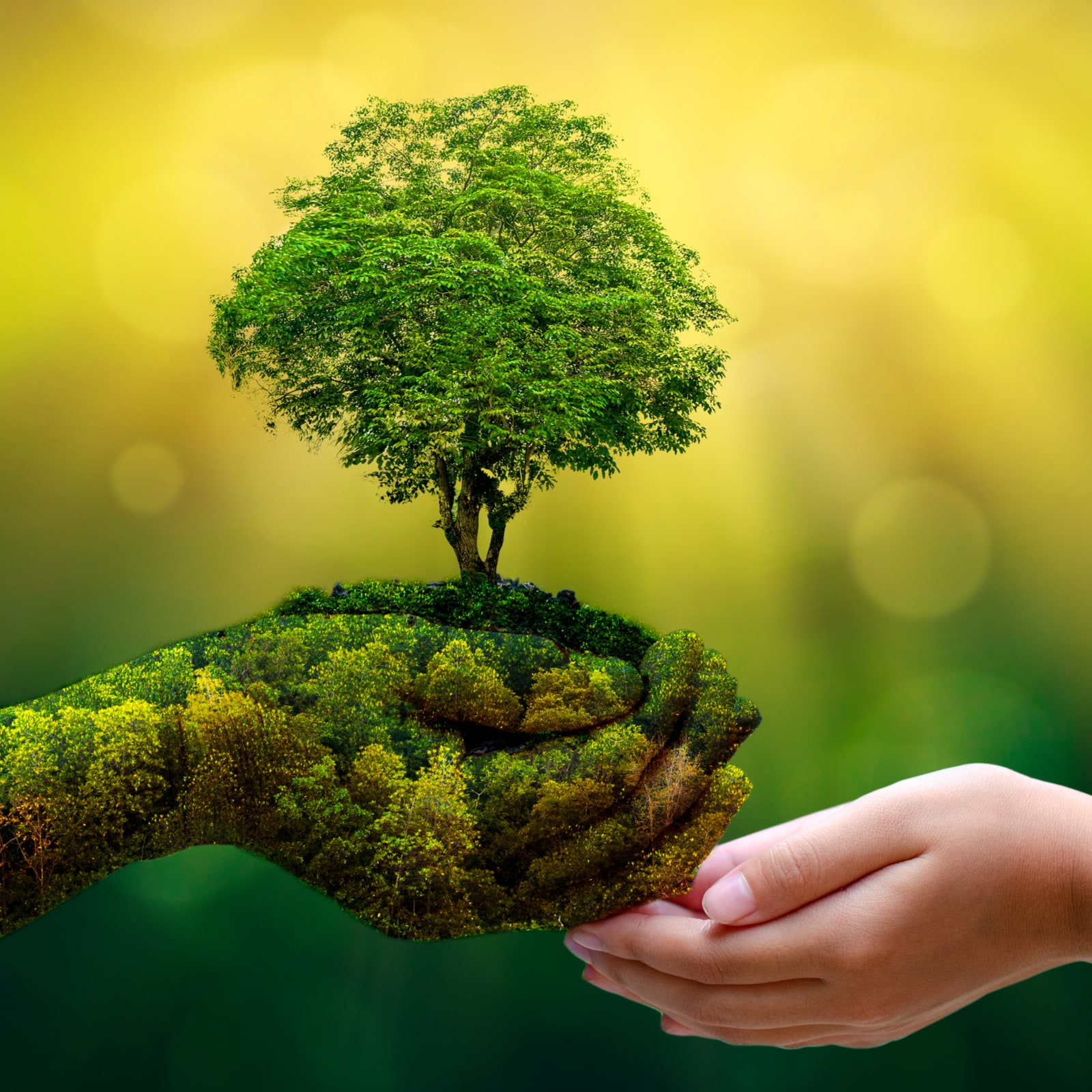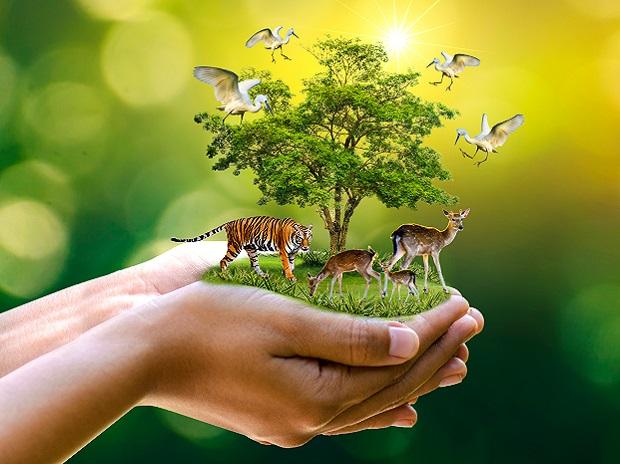New Delhi, 4th September 2021: Indigenous Peoples and local communities provide the best long-term outcomes for conservation, according to new research from the University of East Anglia (UEA) and partners in France.
Lead author, Dr Neil Dawson of UEA’s School of International Development, was part of an international team conducting a systematic review that found conservation success is “the exception rather than the rule”.
 Online Courses with Certification
Online Courses with Certification
But the study, published today in the journal Ecology and Society, suggests the answer could be equitable conservation, which empowers and supports the environmental stewardship of Indigenous Peoples and local communities.
The research team studied the outcomes of 169 conservation projects around the world – primarily across Africa, Asia and Latin America.

Important Announcement – EasyShiksha has now started Online Internship Program “Ab India Sikhega Ghar Se”

Q. Are EasyShiksha's internships truly free?
Yes, all internships offered by EasyShiksha are completely free of charge.
Q. How can I apply for an internship with EasyShiksha?
You can apply by visiting our website, browsing available internships, and following the application instructions provided.
Q. What types of internships are available through EasyShiksha?
EasyShiksha offers a wide range of internships across technology, business, marketing, healthcare, and more. Opportunities are continuously updated.
Q. Will I receive a certificate upon completing an internship?
Yes, upon successful completion, you will receive a certificate recognizing your participation and achievements.
Q. Are EasyShiksha's internship certificates recognized by universities and employers?
Yes, the certificates are recognized by universities, colleges, and employers worldwide.
Q. Is the download of certificates free or paid?
Access to internships and courses is free, but there is a small fee to download certificates, covering administrative costs.
Q. When can I start the course?
You can choose any course and start immediately without delay.
Q. What are the course and session timings?
These are fully online courses. You can learn at any time and pace. We recommend following a routine, but it depends on your schedule.
Q. What will happen when my course is over?
After completion, you will have lifetime access to the course for future reference.
Q. Can I download the notes and study material?
Yes, you can access and download course materials and have lifetime access for future reference.
Q. What software/tools would be needed for the course?
All necessary software/tools will be shared during the training as needed.
Q. I’m unable to make a payment. What should I do?
Try using a different card or account. If the problem persists, email us at info@easyshiksha.com.
Q. Do I get the certificate in hard copy?
No, only a soft copy is provided, which can be downloaded and printed if required.
Q. The payment got deducted but shows “failed”. What to do?
Technical errors may cause this. The deducted amount will be returned to your account in 7-10 working days.
Q. Payment was successful but dashboard shows ‘Buy Now’?
Sometimes payment reflection is delayed. If it takes longer than 30 minutes, email info@easyshiksha.com with the payment screenshot.
Q. What is the refund policy?
If you face technical issues, you can request a refund. No refunds are issued once the certificate has been generated.
Q. Can I enroll in a single course?
Yes, select the course of interest, fill in the details, make payment, and start learning. You will also earn a certificate.
Q. My questions are not listed above. I need further help.
Contact us at info@easyshiksha.com for further assistance.
From restoring national forests in Taiwan and community gardens in Nepal, to watershed restoration in the Congo, sustainable fisheries in Norway, game management in Zambia, and preserving wetlands in Ghana – the team took into account a range of projects.
They investigated how governance – the arrangements and decision making behind conservation efforts – affects both nature and the well-being of Indigenous Peoples and local communities.
The work, which is part of the Just Conservation research project funded by the French Foundation for Research on Biodiversity (FRB) within its Centre for Biodiversity Synthesis and Analysis (CESAB), and was initiated through the International Union for the Conservation of Nature’s Commission on Environmental, Economic and Social Policy (IUCN CEESP).
It is the result of collaboration between 17 scientists, including researchers from the European School of Political and Social Sciences (ESPOL) at the Catholic University of Lille and UEA.
Dr Dawson, a Research Fellow, examines poverty, wellbeing and environmental justice among rural populations, particularly poor and marginalised social and ethnic groups, and is a Steering Committee member of the International Union for the Conservation of Nature’s Commission on Environmental, Economic and Social Policy (IUCN CEESP).
Dr Dawson said: “This study shows it is time to focus on who conserves nature and how, instead of what percentage of the Earth to fence off.”
“Conservation led by Indigenous Peoples and local communities, based on their own knowledge and tenure systems, is far more likely to deliver positive outcomes for nature. In fact, conservation very often fails because it excludes and undervalues local knowledge and this often infringes on rights and cultural diversity along the way.”
International conservation organizations and governments often lead the charge on conservation projects, excluding or controlling local practices, most prominently through strict protected areas.
The study recommends Indigenous Peoples and local communities need to be at the helm of conservation efforts, with appropriate support from outside, including policies and laws that recognize their knowledge systems.”
Furthermore, it is imperative to shift to this approach without delay, Dr Dawson said.
“Current policy negotiations, especially the forthcoming UN climate and biodiversity summits, must embrace and be accountable for ensuring the central role of Indigenous Peoples and local communities in mainstream climate and conservation programs. Otherwise, they will likely set in stone another decade of well-meaning practices that result in both ecological decline and social harms.
“Whether for tiger reserves in India, coastal communities in Brazil or wildflower meadows in the UK, the evidence shows that the same basis for successful conservation through stewardship holds true. Currently, this is not the way mainstream conservation efforts work.”
From an initial pool of over 3,000 publications, 169 were found to provide detailed evidence of both the social and ecological sides of conservation.
Strikingly, the authors found that 56 per cent of the studies investigating conservation under ‘local’ control reported positive outcomes for both human well-being and conservation.
For ‘externally’ controlled conservation, only 16 per cent reported positive outcomes and more than a third of cases resulted in ineffective conservation and negative social outcomes, in large part due to the conflicts arising with local communities.
However, simply granting control to local communities does not automatically guarantee conservation success.
Local institutions are every bit as complex as the ecosystems they govern, and this review highlights that a number of factors must align to realize successful stewardship.

Community cohesion, shared knowledge and values, social inclusion, effective leadership and legitimate authority are important ingredients that are often disrupted through processes of globalisation, modernisation or insecurity, and can take many years to re-establish.
Additionally, factors beyond the local community can greatly impede local stewardship, such as laws and policies that discriminate against local customs and systems in favour of commercial activities. Moving towards more equitable and effective conservation can therefore be seen as a continuous and collaborative process.
Top Courses in Software Engineering
Dr Dawson said: “Indigenous Peoples’ and local communities’ knowledge systems and actions are the main resource that can generate successful conservation. To try to override them is counterproductive, but it continues, and the current international policy negotiations and resulting pledges to greatly increase the global area of land and sea set aside for conservation are neglecting this key point.
“Conservation strategies need to change, to recognize that the most important factor in achieving positive conservation outcomes is not the level of restrictions or magnitude of benefits provided to local communities, but rather recognizing local cultural practices and decision-making. It is imperative to shift now towards an era of conservation through stewardship.”
‘The role of Indigenous Peoples and local communities in effective and equitable conservation’ is published in the journal Ecology and Society on September 2, 2021.
Also Read: india-needs-more-eye-donors-to-support-the-annual-demand
Get Course: International-Finance-for-Beginners



































































